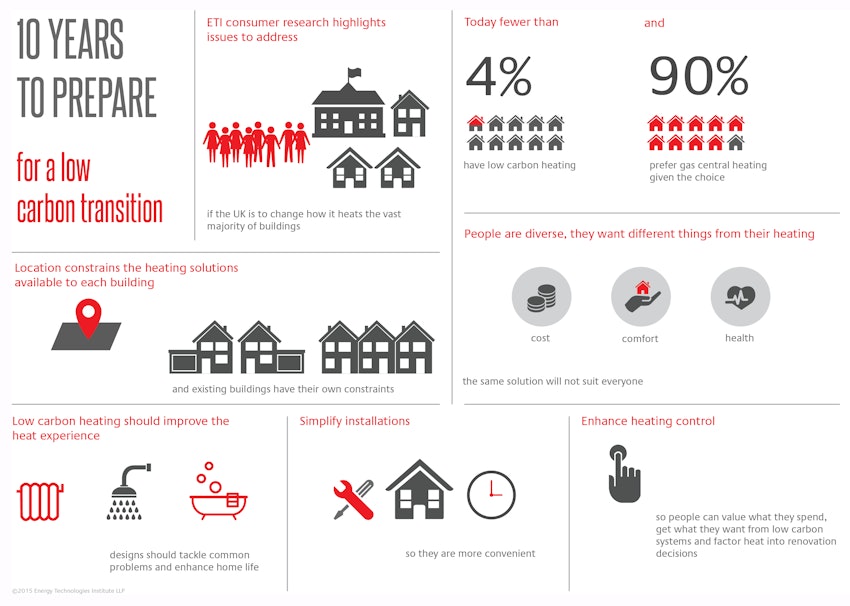Consumer challenges for low carbon heat

Matthew Lipson
Head of Consumer Insight, Energy Systems Catapult
Consumer needs have to be met to change how we heat buildings
The UK will need to all but eliminate emissions from domestic heating to meet its carbon targets. Previous emissions reductions have been relatively simple, cheap and delivered clear benefits to households. But the options currently available to make further reductions would require households to endure more disruption for less obvious benefits. Policy makers are likely to be reluctant to force changes in people’s homes that are widely unpopular.
We need to develop ways to reduce emissions from domestic heating that are more appealing to consumers, thereby making the transition to low carbon heating much easier to deliver in practice. These solutions will need to be underpinned by sound engineering; high quality design; appropriate technical, consumer and economic regulation; and financially viable business models. The ETI has conducted a range of in-depth consumer research to inform the design of holistic solutions. The findings revealed three key consumer challenges for the transition to low carbon heating.

Matthew Lipson
Head of Consumer Insight, Energy Systems Catapult
Matthew Lipson, ESC's Head of Consumer Insight, has spent the last 15 years’ working across industry and government to design commercial propositions and policies that deliver great experiences
